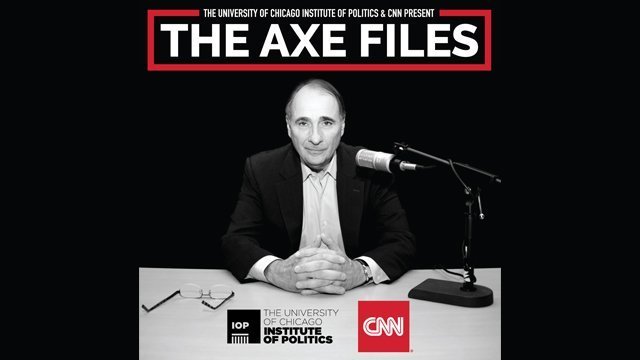The philosophical gulf between President Donald Trump’s national security team and key members of his White House staff is producing an inconsistent foreign policy that has “confused” America’s allies, says CNN’s chief national security correspondent.
“You have public contradiction between the head of state and some of his most senior advisers on the most central national security issues,” Jim Sciutto told David Axelrod on “The Axe Files,” a podcast from the University of Chicago Institute of Politics and CNN.
Sciutto, who also served for two years as a top aide to the US ambassador to China, said that mixed signals from the White House have caused foreign officials to ask a version of the same question: who does President Trump listen to?
“That’s the key question for the foreign leaders and diplomats,” Sciutto said. “I think the simplest answer is, they don’t know. They don’t know yet. And that’s a problem.”
Sciutto sat down with Axelrod amid an ongoing overhaul of Trump’s National Security Council under the leadership of Lt. Gen. H.R. McMaster, which included the elimination of chief strategist Steve Bannon’s permanent seat on the council’s senior policy committee; and the exit from the National Security Council of K.T. McFarland, the former deputy to ousted national security adviser Michael Flynn.
The moves are seen as a sign of increased influence for McMaster, a career military officer whose views on American engagement in the world are seen as in conflict with the more isolationist approach of Bannon.
The conversation with Sciutto took place on the eve of President Trump’s decision last week to order airstrikes against the Syrian government in retaliation for its suspected use of chemical weapons against its citizens. The US military action has been praised by a number of America’s key allies in the Middle East, Europe, and Asia.
Providing an example of the White House’s lack of clarity to its allies, Sciutto pointed to the “odd contradiction” that’s presented to the world when President Trump hesitates to show toughness toward Russia, while his most senior national security aides state publicly that Russia poses a threat to the US.
“Why is it that (Trump) won’t say in public, ‘Russia’s a threat and we have to stand up to Russia,'” Sciutto asked.
That uncertainty has real consequences for the Baltic country of Estonia, a US ally and NATO member. President Trump’s disparagement of the NATO alliance has left Estonia “nervous” that America would not defend them from a Russian invasion, Sciutto said, which the country fears could happen in light of Russia’s aggression in Ukraine and the Republic of Georgia.
“That’s a real danger to (Estonia), so they need reassurance,” Sciutto said, adding that they have found encouragement from certain members of the President’s national security team. “But then they’ll hear a contradictory statement from the President himself, and that worries the heck out of them.”
To hear the whole conversation with Sciutto, click on http://podcast.cnn.com. To get “The Axe Files” podcast every week, subscribe at http://itunes.com/theaxefiles.



